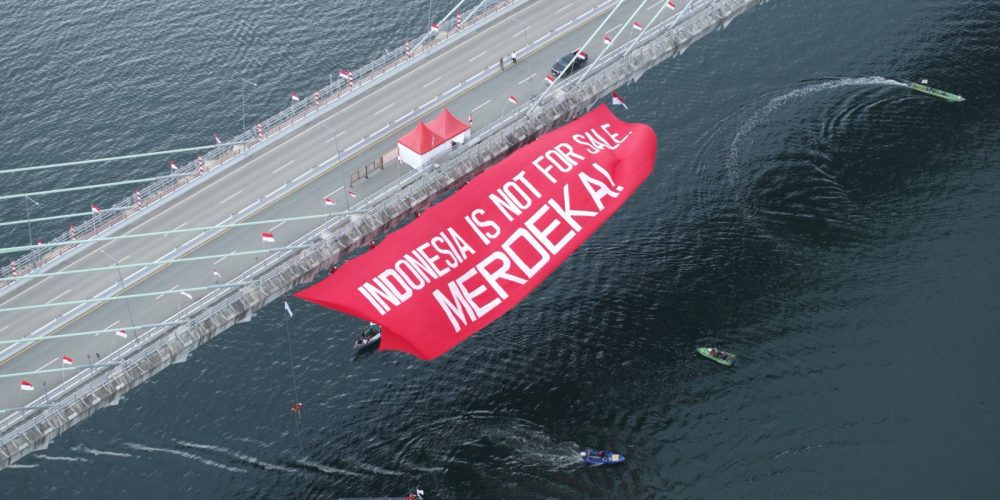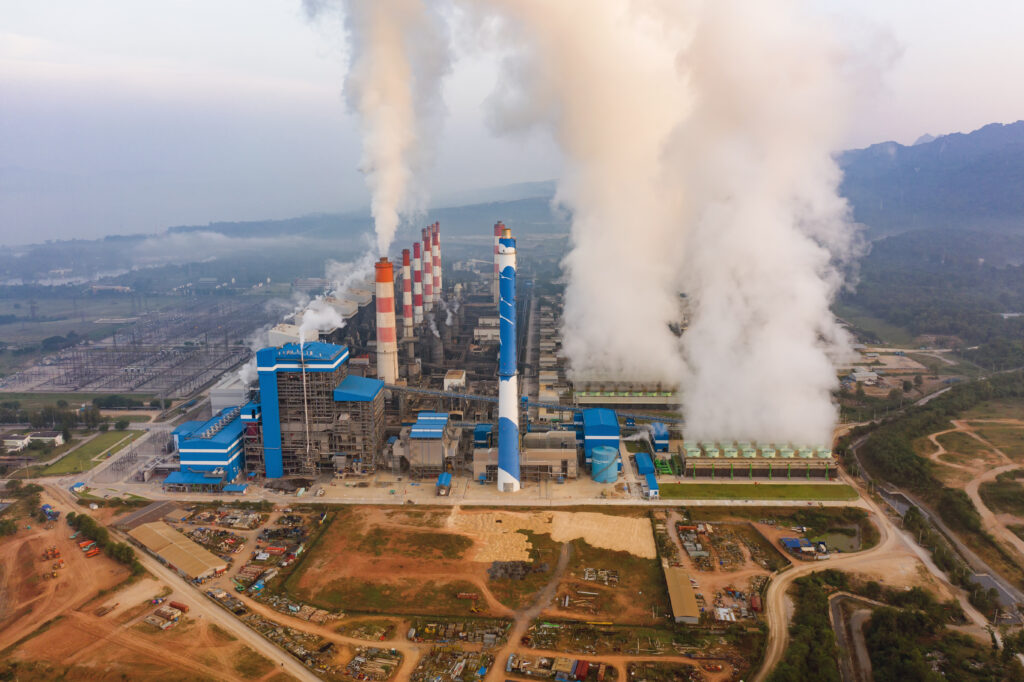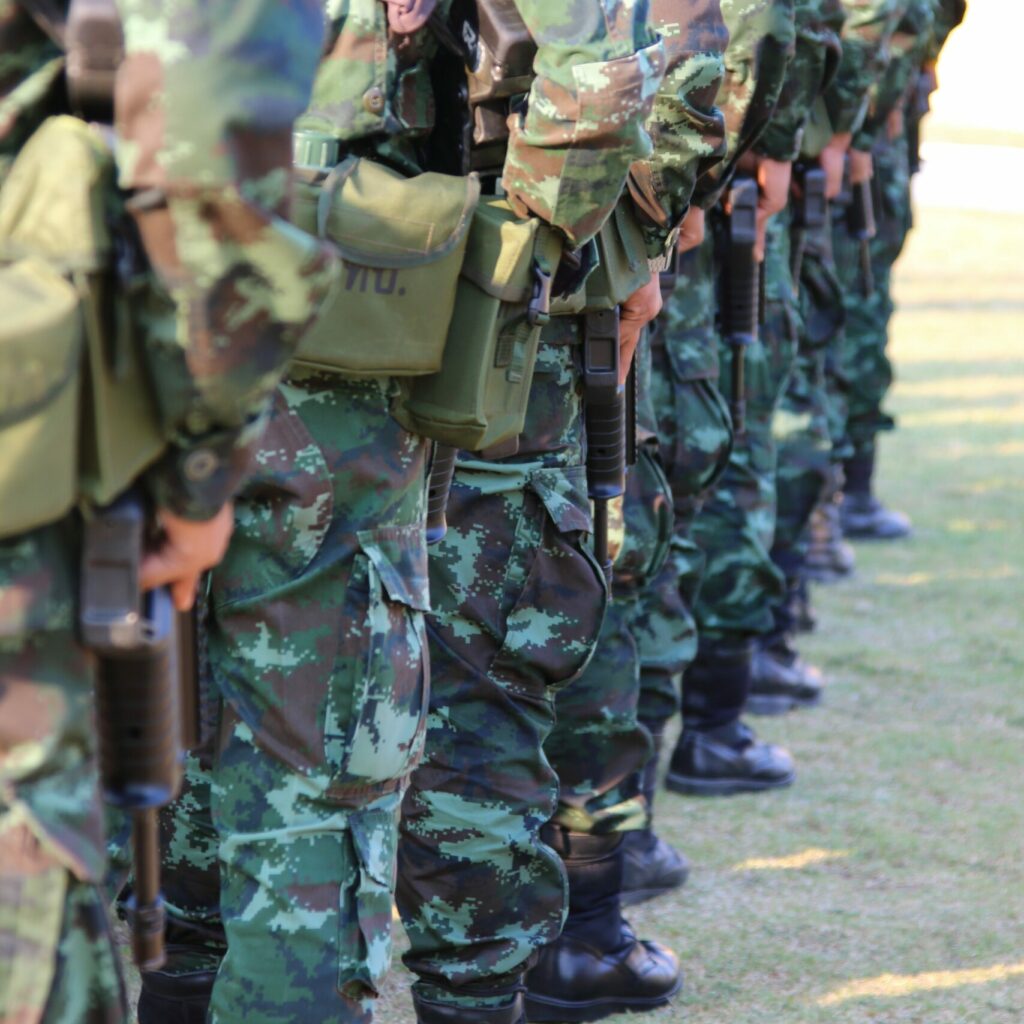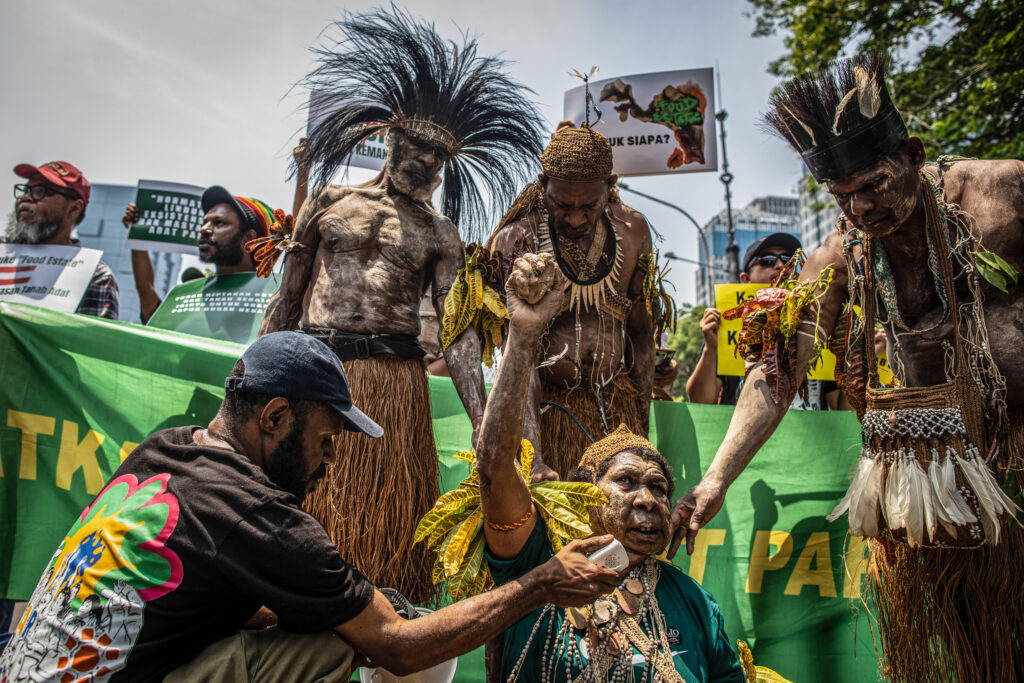Press Release
‘Indonesia is Not For Sale’,Call from Civil Society and Residents Victims of the IKN on the 79th Independence day of the Republic of Indonesia
Penajam Paser Utara, East Kalimantan, August 17, 2024—Not so far from the location of the IbuKota Nusantara (IKN), a number of civil society organizations and residents in Penajam Paser Utara, East Kalimantan, held a series of activities to commemorate Indonesia’s independence day. However, unlike the lavish event led by President Joko Widodo (Jokowi), this celebration became a moment for the community to voice various concerns about environmental damage and the weakening of democracy in the country.
The series of events opened with a ceremony to commemorate Indonesia’s 79th independence day. Dozens of people from several villages and civil society organizations held a flag ceremony in the Lango Beach area, Penajam District. The event continued with the unfurling of a 50×15 meter red cloth with white writing reading “Indonesia is not for sale, Merdeka!” on the Balang Island Bridge by a number of Greenpeace activists. A number of other banners were unfurled from wooden boats that held an independence parade in the waters under the bridge. Some of them read “Save Balikpapan Bay”, “Land for the People”, “Evicted by PSN, Not 100% Independent”, “Not Independent Enough to Speak”, “79 Years of Independence, 190 Years of Colonization”, and others.*
“President Jokowi’s apology in his Independence day’s speech yesterday was meaningless after a decade of his government that took Indonesia further away from the ideals of independence. At the end of his term, Jokowi inherited various problems of injustice. The IKN that he was proud of was in fact a haphazard and reckless project that robbed the rights of indigenous and local communities, but provided a red carpet for oligarchs. As if selling off this country, Jokowi gave land ownership permits for up to 190 years to investors in the island. Environmental damage due to the construction of the IKN will also have an impact on worsening the climate crisis,” said Arie Rompas, Head of the Greenpeace Indonesia Campaign Team
Even before the construction of the IKN in East Kalimantan, the island of Kalimantan had been exploited. Government collusion with palm oil and pulp oligarchies was the main driver of deforestation covering 15 million hectare-s and the expropriation of land from indigenous and local communities. Forest Watch Indonesia (FWI) data recorded that around 20 thousand hectares of forest in the IKN area were lost over the past five years. The total remaining natural forest cover in the IKN area is only 31,364 hectares, including a mangrove forest area of 12,819 hectares. Jokowi’s determination to build the archipelago (referring to Nusantara) as a ‘forest city’ is just empty talk because it is not accompanied by efforts to protect the remaining natural forests and restore damaged ones.
“The IKN is the perfect face of the illusion of splendor in the celebration of 79 years of independence. The pride of our nationalism and nationhood is trapped in the splendor of infrastructure alone. The facts on the ground, such as agrarian conflicts, ecological impacts and criminalization are obscured. The IKN development project also creates ‘voiceless’ victims, such as orangutans, proboscis monkeys, porpoises, and biodiversity in the Balikpapan Bay landscape, whose habitat and existence are threatened but they cannot speak up,” said the Executive Director of the Indonesian Environmental Forum (Walhi) East Kalimantan, Fathur Roziqin Fen.
The IKN project has been proven to threaten biodiversity. The construction of the IKN has cleared more than four hectares of mangroves in the upper reaches of Balikpapan Bay—which is the access route for heavy equipment. The destruction of mangroves and the massive mobility of the bay—which has long been the habitat of dolphins, dugongs, and estuarine crocodiles—have disrupted the fauna ecosystem, causing frequent conflicts with local residents in recent years.
“This policy increasingly indicates that coastal communities are not yet independent in managing their own coastal and marine areas. Coastal areas and small islands, including the habitats of flora and fauna around them, are increasingly vulnerable to being sacrificed for oligarchic development. This policy is an irony on Indonesia’s 79th Independence Day,” said the Executive Director of the Balikpapan Coastal Working Group, Mappaselle.
The construction of the IKN is also clearly a burden on the state finances. As per now, the Jokowi administration has disbursed Rp72.3 trillion of the APBN for the Rp466 trillion project, while continuing to seek investors from within and outside the country with various tax incentive sweets. The government also spent Rp87 billion – an increase from the previous year – for the 79th Indonesian Independence Day ceremony at the IKN.
“Behind the grandeur of the story of the development of the nation’s capital city in front of the international world, Jokowi has left an economic burden and an ecological burden on the people. The APBN which should have been invested for the urgent interests of the people’s welfare was instead squandered on a lighthouse project that caused misery for the people. The report “New Capital City for Whom” from the #CleanIndonesia Coalition found indications that the beneficiaries of this business project were none other than the economic-political elite who are connected to the current government,” said Meike Inda Erlina, Trend Asia Campaigner.
The government should restore East Kalimantan which was hit by a multidimensional crisis. However, Jokowi actually perpetuated colonial practices by giving forgiveness of sins and bonuses for doing business in the procurement of infrastructure in the IKN to investors and oligarchs. The construction of the IKN mega project has not only caused problems for residents on the island of Kalimantan. The community in Palu, Central Sulawesi, is also exposed to dust from mining of stone and gravel for IKN materials.
The relocation of the capital city also does not automatically solve Jakarta’s various problems, such as plastic waste, chronic flooding, traffic jams, and air pollution. The sudden relocation of the nation’s capital without correcting the nature of development so far, which has been extractive and unsustainable, is a wrong step. There needs to be a more comprehensive, participatory, and inclusive structural policy overhaul, which prioritizes environmental sustainability, so that a city’s development project—either in Jakarta or in Penajam Paser Utara—does not become a feast for a handful of oligarchs.***
Photos and videos can be downloaded at the following links:https://media.greenpeace.org/collection/27MZIFJBMFDOT
Contact Person:
Arie Rompas, Greenpeace Indonesia, +62 811-5200-822
Walhi Kalimantan Timur, +62 811-5331-997
Meike Inda Erlina, Trend Asia, +62 852-6807-0230
Land Coalition for the People (Titura):
Warga Korban Proyek IKN, Wahana Lingkungan Hidup Indonesia (Walhi) Kaltim, Jatam Kaltim, Pokja 30, Fraksi Rakyat Indonesia (FRI) Kaltim, Lembaga Bantuan Hukum (LBH) Kaltim, Pokja Pesisir Balikpapan, PBH Peradi, Greenpeace Indonesia, Trend Asia, Yayasan Lembaga Bantuan Hukum Indonesia (YLBHI), Eksekutif Nasional (Eknas) Walhi, PBHI




